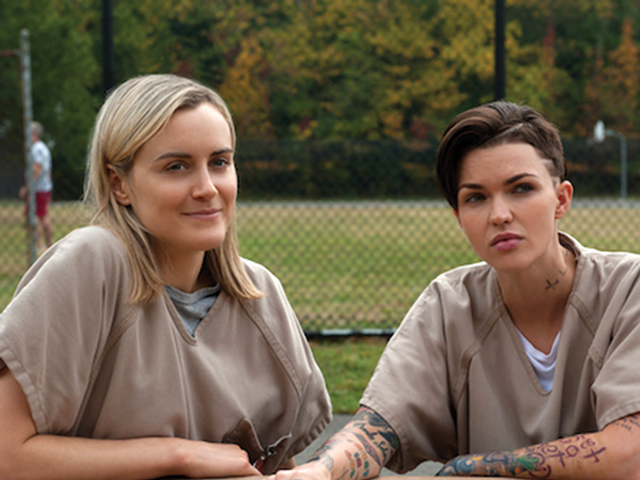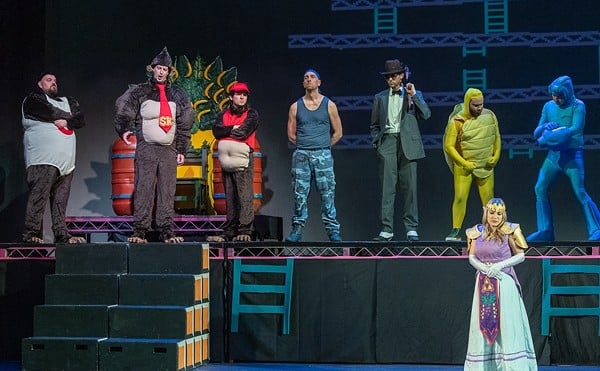Noble Denim conquered the world with their Cincinnati- and Tennessee-based line of handmade denim jeans, and now founders Abby and Chris Sutton and their team are venturing into a collection of organic cotton knit basics called Victor Athletics in hopes to make more of an impact with U.S.-hewn apparel.
“The goal with Victor is to raise the bar on ‘Made in America’ and offer a highly detailed item at an accessible price so more people could join us in giving work to our factories,” Abby says.
The name “Victor” comes from the idea of “the hometown factory being the victor,” she says. Noble’s jeans are hand-stitched in a factory in Milledgeville, Tenn., and because of the high-quality of the denim, the price points are out of most people’s range — around $250 for a pair of men’s jeans. For Victor, they took the pricing feedback they received from their customers to heart and designed an athletic wear line that was affordable to the average consumer, but was also socially- and environmentally-conscious. The truth of the matter is that in 1980, America made 80 percent of its clothes in the U.S., but today that figure is only 2 percent. The U.S. lost 5.2 million manufacturing jobs in a 30-year timespan because of outsourcing.
“Housing our denim and sweatshirts in one factory is important to us because one of the main goals of Victor is to create additional work for Danny [Swafford, Milledgeville’s factory owner] and his team,” Abby says. They also added another factory to handle more of Victor’s output.
Most of us probably own clothing with labels that read “Made in China” or “Made in Bangladesh” — which conjures visions of children sewing in sweatshops — but how many of your articles of clothing say “Made in the USA?” We are in the midst of a craft-everything revolution, and apparel should be taken as seriously as organic apples, Abby says.
“Half of Millennials buy at least half their food organic — but that trend in conscious spending hasn’t translated to clothes, because the clothes options are more polarizing,” she says.
This spring the Suttons launched a Kickstarter campaign and raised $123,002 from 1,166 backers, becoming the sixth-largest apparel campaign in Kickstarter history. Sometime in July, the backers will receive the first batch of Victor clothing, which includes comfortable men and women’s crewneck sweatshirts (made with 80 percent USA organic cotton and 20 percent recycled polyester) in solid colors of heather gray, black and navy; women’s twill sweatpants; organic single-origin cotton crewneck T-shirts; men’s jogger sweatpants; and classic hoodies. Abby says conventional cotton is the most pesticide-laden crop in the U.S., but to avoid that, they procure their organic cotton from a farm in Texas. And Daniel Sanders of Asheville, N.C., who was responsible for Patagonia’s first organic tee collection, knits the clothes.
Victor’s collection is only sold online because it keeps costs down, so you’ll pay $28 for a T-shirt compared to about $40 for an organic Patagonia men’s T-shirt.
“We wanted to incorporate details that we found in vintage knits from the ’60s, ’70s and ’80s: elongated cuff and waist ribbing, larger V insert on the chest and collar ribbing sewn on the bias, to name a few,” Abby says. “With Victor, we’re able to achieve the vintage aesthetic through natural methods without compromising on fit.”
In the fall, Victor plans on expanding the brand and adding more styles and colors after their Kickstarter production is finished. Unlike Noble’s clothing, which also encompasses basics like sweatshirts and tees, Victor won’t be sold in local boutiques such as Article, but a possible pop-up shop is in the works.
“Cincinnatians have always been a big supporter of Noble and Victor,” Abby says. “Noble sold through our tees and sweatshirts very quickly — now Victor makes the same tees and sweatshirts at half the price.”
Despite the Tennessee factories having ample work, a lot needs to be done to save U.S. apparel manufacturing.
“A lot of the factories that we know and work with are still barely holding on,” Abby says. “We hope to see that change as American Made becomes a consistent and more accessible value for our country.”
For more information about VICTOR ATHLETICS, go to victorathletics.com.






